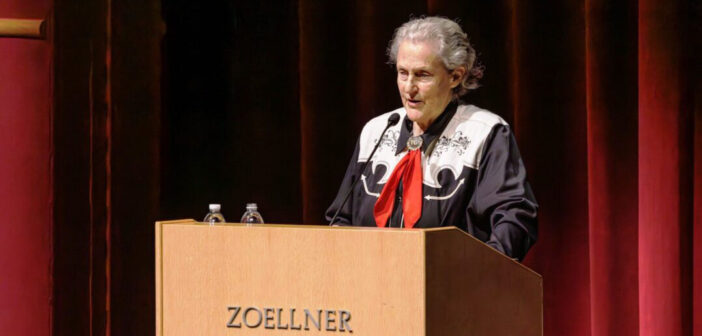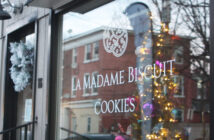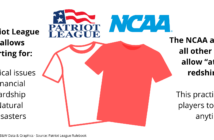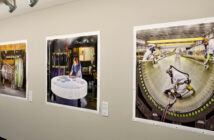Diagnosed with autism at a young age, Temple Grandin has had a long history of advocating for autistic communities.
At the beginning of her academic journey, Grandin struggled to find accessibility as an autistic student. Now, she speaks out about ways schools can be more accommodating to autistic students.
The best-selling author and autism awareness advocate visited Lehigh’s Zoellner Arts Center on Oct. 13 to discuss her experiences with autism and different thinkers in the world. Over 400 people attended Grandin’s talk, “The Way I See It: A Personal Look at Autism and Asperger’s.”
Representatives from local organizations including Good Shepherd, The Autism Society, The Baker Foundation and staff members of Lehigh’s Office of Disabilities Services attended. There were also many parents of neurodivergent children from Bethlehem and surrounding areas.
The main focus of Grandin’s talk was the various kinds of thinkers in the world and how this can influence what studies they decide to pursue. She said different problems need different approaches to solve them.
“I don’t know a veterinarian that studies algebra,” Grandin said. “They don’t use it in veterinary medicine. Some people think that you need the algebra to get the problem solved, but that’s not how I think.”
She said she is a visual thinker and is someone who notices things many people don’t. She emphasized the importance of a balance between visual and verbal thinkers, and how they complement one another in the real world.
“Say you want to build a building: the architects make the buildings look nice and engineers make sure it’s safe,” Grandin said. “That’s how you get things done.”
Grace Murphy, 25’G, who is studying special education and was recently diagnosed with autism, said she has always admired Grandin and sees her as a role model.
Murphy said she struggled during her time as an undergraduate student and didn’t get diagnosed until she was 27.
“I didn’t make a lot of friends, especially girlfriends, so it was very difficult,” Murphy said. “I never wanted to go to college and always wanted to skip classes.”
For students with autism, Grandin’s advice is to make friends through shared interests.
She also emphasized the importance of creativity inside classroom settings. She said Nobel Prize-winning scientists are more likely to have artistic hobbies, so the arts should be encouraged in the classroom.
Tom Martin, ‘71, said one of the reasons he attended Grandin’s speech was because she speaks to both artists and engineers. He is both of those things, as are his children.
“We have three brilliant, unusual children, and they’re different,” Martin said. “We would not have been able to define what spectrum they were on without hearing Temple Grandin.”
Ellen Baker Ghedlardi, trustee and board secretary of the Baker Foundation, said faculty members and community partners have pledged to make learning spaces more inclusive.
She said the foundation will sponsor a new quiet room in Zoellner to make art experiences more accessible.
“I hope that more organizations — colleges, as well as individual not-for-profits, schools — all consider alternative ways for people to participate,” Ghedlardi said. “And it’s not just participating, it’s engagement too.”






Comment policy
Comments posted to The Brown and White website are reviewed by a moderator before being approved. Incendiary speech or harassing language, including comments targeted at individuals, may be deemed unacceptable and not published. Spam and other soliciting will also be declined.
The Brown and White also reserves the right to not publish entirely anonymous comments.
1 Comment
Beautifully reported great job Maya!!!!